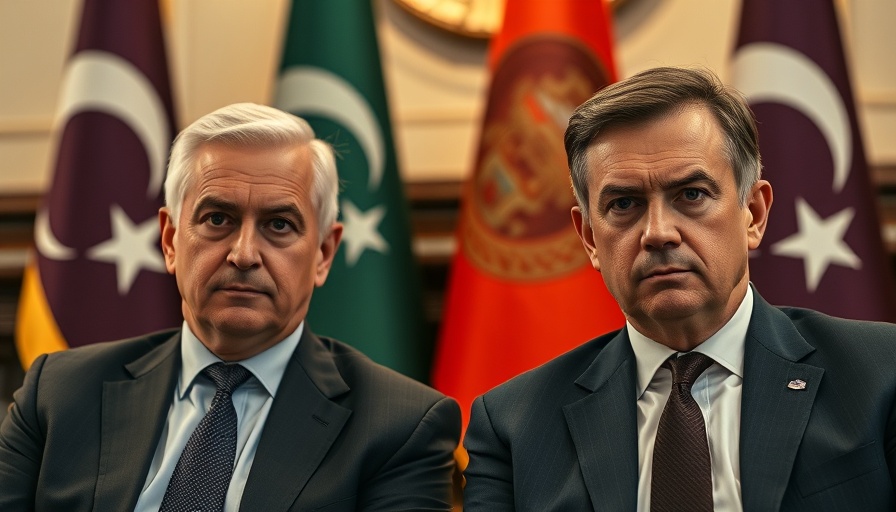
Trump and Putin Initiate Ceasefire Talks
In a significant conversation held on March 18, U.S. President Donald Trump and Russian President Vladimir Putin agreed on steps toward a ceasefire, primarily targeting energy and infrastructure, as a preliminary measure to jeopardize the ongoing war in Ukraine. This call, lasting over 90 minutes, emerged after a tense interaction involving Trump, Vice President JD Vance, and Ukrainian President Volodymyr Zelenskyy.
What's at Stake? The Energy Infrastructure Ceasefire
The heart of the agreement lies in a mutual understanding to refrain from attacking each other’s energy infrastructures for the next 30 days. A cessation on these critical targets could mark the first de-escalation in a war that has raged for over three years. Trump expressed optimism in a Truth Social post, characterizing this as a first step toward ending a "very horrible War between Russia and Ukraine." Meanwhile, the Kremlin mirrored these sentiments, confirming Putin's order to halt military strikes on Ukraine's energy sites.
Ukrainian Response: Cautious Optimism
Ukrainian President Zelenskyy indicated his willingness to consider a ceasefire, contingent upon Russia's cooperation. He stated, "Russia and Ukraine, through the mediation of the U.S., can agree not to attack energy infrastructure... We will respond" if attacks continue. This cautious stance illustrates Ukraine’s wariness, given the historic context of broken promises from Russia in previous conflicts.
Broader Implications for International Relations
This limited ceasefire raises questions about the broader implications for international diplomacy. While it may signal Russia's potential willingness to engage in peace talks under Trump's leadership, skepticism remains. Some officials suspect this is merely a tactical pause for Putin, who might be stalling for time while maintaining pressure on Ukraine in ongoing territorial disputes.
What Comes Next for Taxpayers?
For taxpayers globally, the current geopolitical landscape may influence economic forecasts and fiscal policies. As international relations shape trade, energy prices, and military spending, it becomes crucial to stay informed on how such developments may affect personal finances and tax planning strategies.
Final Thoughts: Navigating Uncertain Times
The call between Trump and Putin, while promising a glimmer of hope in peace negotiations, exposes the fragile nature of geopolitical dialogues. As taxpayers, there is value in understanding not just the direct implications of these discussions, but also the indirect effects on economic stability and personal finances. Staying proactive in financial planning is essential as organizations and individuals alike prepare for fluctuating economic conditions.
 Add Row
Add Row  Add
Add 




 Add Row
Add Row  Add
Add 

Write A Comment